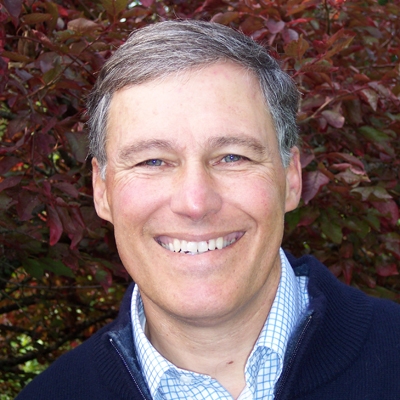Since my trip to Mumbai last March, I have committed myself full bore, with every fiber of my being, to pushing a legislative agenda that could bust through the solid barrier of congressional apathy and create an aggressive American response to global warming. The world would not move if Congress would not move. Congress would not move if I did not move.
As Gandhi would say, I have to become the change I seek in the world.
This was not the easiest reality to face. It's one thing to fly across the world to ask the Prime Minister of India to commit to an international agreement on global warming. It's quite another to ask me to change in some basic way. I discovered an interesting principle of life. It's much easier to ask 1.3 billion people to do something a bit difficult than to ask just one - when that one happens to be you.
But shouldn't I at least try and get off the ground? The answer was obviously quite clear. Not only should I raise my commitment, I could raise my commitment. So the question then became, how?
I had already started down the right path, I thought. My wife Trudi and I kept our house on Bainbridge Island at about 58 degrees, we drove a Prius Hybrid, had all the most efficient appliances available, used biodiesel in our furnace, walked when we could, and had spent the last Christmas break stuffing insulation under our house. So for a brief moment I asked, what was left to do?
Then my friend Rush Holt, the second physicist ever to serve in Congress and the only one to have won on TV's "Jeopardy," passed me a copy of Science magazine, and told me to read the article about biofuels. As I was reading it, one fact jumped out at me - to get a given number of calories from beef takes about 16 times as much energy to produce those same calories as does getting those calories from grains or vegetables. As an eater of cheeseburgers, steaks, and prime rib, I was spewing out 16 times more CO2 at a given meal than those munching on veggies.
That set off a big red light in the parts of my brain dedicated to food, which is about 83% of my total frontal cortex. Could I really even think about moving down on the food chain, at least a couple of rungs, at least most of the time?
If I was somewhat self-congratulatory for driving a car that improved its mileage, reduced its CO2 emissions by about 50% over the average car, why wouldn't I also be willing to make a little change in my diet to obtain an improvement by a factor of 16 at the dinner table? It wouldn't be as visible as driving around in my spiffy little Prius, but cutting my emissions by a factor of 16 could perhaps dwarf what other actions I could take on this journey.
If you ask me a year from now how many pieces of red meat I have eaten in the last year, it is going to be a mighty small number, making allowances for the odd celebratory hot dog at the two football games I go to a year with my Dad. At the end of that year, I suspect if asked, I would say that this small change hardly changed the world, no more so than my voting, not littering, and recycling haven't individually changed the world.
But this small step put me, at least, on the path to becoming the change I seek in the world. More importantly, this was the first step, to be followed by many others, both public and private, that you may find of interest if the planet is on your list for saving.
----------
Jay Inslee represents the First District of the State of Washington (Seattle area) in the United States House of Representatives. He is the co-author of Apollo’s Fire: Igniting America’s Clean Energy Economy.
Jay Inslee is a member in the United States House of Representatives, representing the First District of the State of Washington, in the Seattle area. He is a recognized leader in Congress on energy issues and is the prime sponsor of the New Apollo Energy Act, a comprehensive plan to build a clean energy economy in America. Congressman Inslee was elected in 1998 and serves on the Energy Subcommittee of the House Energy and Commerce Committee.


